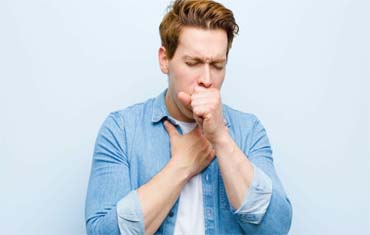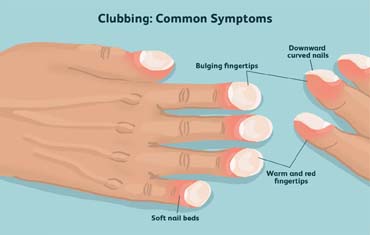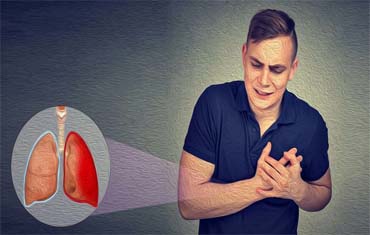• Chronic-Acute Cough & Cold

A cough is considered "acute" if it lasts less than three weeks. It is considered "chronic" if it lasts longer than eight weeks (four weeks in children).
• Asthma

Asthma is a condition in which your airways narrow and swell and may produce extra mucus. This can make breathing difficult and trigger coughing, a whistling sound (wheezing) when you breathe out and shortness of breath. For some people, asthma is a minor nuisance.
• Bronchitis

Acute bronchitis is often caused by a viral respiratory infection and improves by itself. Symptoms of bronchitis include coughing up thickened mucus and shortness of breath. Treatments usually includes soothing remedies to help with coughing, which may last weeks. Antibiotics are not usually recommended.
• Allergies

Allergies are your body's reaction to a normally harmless substance such as pollen, molds, animal dander, latex, certain foods and insect stings. Allergy symptoms range from mild – rash or hives, itchiness, runny nose, watery/red eyes – to life-threatening.
• COPD

Chronic obstructive pulmonary disease (COPD) is a chronic inflammatory lung disease that causes obstructed airflow from the lungs. Symptoms include breathing difficulty, cough, mucus (sputum) production and wheezing.
• Pulmonary Fibrosis

Pulmonary fibrosis is a lung disease that occurs when lung tissue becomes damaged and scarred. This thickened, stiff tissue makes it more difficult for your lungs to work properly. As pulmonary fibrosis worsens, you become progressively more short of breath.
• Pneumonia

Pneumonia is an infection that inflames the air sacs in one or both lungs. The air sacs may fill with fluid or pus (purulent material), causing cough with phlegm or pus, fever, chills, and difficulty breathing. A variety of organisms, including bacteria, viruses and fungi, can cause pneumonia.
• Tuberculosis

Tuberculosis (TB) is a potentially serious infectious disease that mainly affects the lungs. The bacteria that cause tuberculosis are spread from person to person through tiny droplets released into the air via coughs and sneezes.
• Influenza

The flu attacks the lungs, nose and throat. Young children, older adults, pregnant women and people with chronic disease or weak immune systems are at high risk. Symptoms include fever, chills, muscle aches, cough, congestion, runny nose, headaches and fatigue. Flu is primarily treated with rest and fluid intake to allow the body to fight the infection on its own. Paracetamol may help cure the symptoms but NSAIDs should be avoided. An annual vaccine can help prevent the flu and limit its complications.
• Pleurisy

Pleurisy (PLOOR-ih-see) is a condition in which the pleura — two large, thin layers of tissue that separate your lungs from your chest wall — becomes inflamed. Also called pleuritis, pleurisy causes sharp chest pain (pleuritic pain) that worsens during breathing.
• Lung Cancer

Two major types of lung cancer are non-small cell lung cancer and small cell lung cancer. Causes of lung cancer include smoking, second-hand smoke, exposure to certain toxins and family history. Symptoms include a cough (often with blood), chest pain, wheezing and weight loss. These symptoms often don't appear until the cancer is advanced. Treatments vary but may include surgery, chemotherapy, radiation therapy, targeted drug therapy and immunotherapy.
